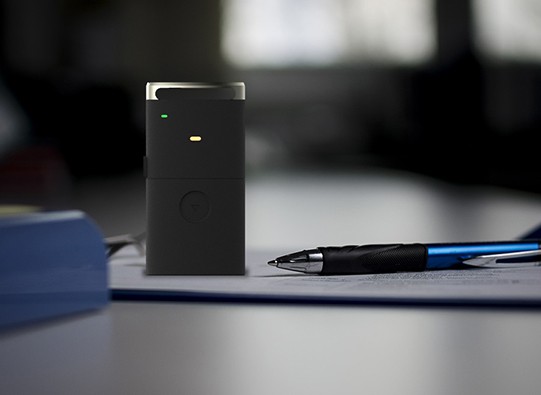
Hardware-Based 2FA into PCs
Hardware-based two-factor authentication (2FA) is a powerful security measure that provides an additional layer of protection beyond traditional usernames and passwords. By requiring both something you know (password) and something you have (physical device), hardware-based 2FA significantly decreases the chances of unauthorized access. This is more secure than simply using a single factor to authenticate. The trouble is, users are reticent to perform more steps each time they have to login (many times a day).
Types of Hardware 2FA
While there are several types of hardware-based 2FA devices, the most common ones are security keys and smart cards. Security keys are small electronic devices that might be plugged into your computer or mobile device. Smart cards are credit-card-sized cards that contain a microchip. More advanced security keys come with wireless technology such as Bluetooth.
One of the most common forms of 2FA is hardware-based authentication, which uses physical devices to generate or verify authentication codes. Here are three types of hardware 2FA:
Security Tokens – Security tokens are small physical devices that generate a one-time password (OTP) that the user enters in addition to their username and password. These tokens are often used by organizations to provide employees with secure access to corporate networks, systems, and applications. They are available in different forms, such as USB tokens, smart cards, and key fobs.
Biometric Tokens – Biometric tokens use biometric data, such as fingerprints, facial recognition, or iris scans, to authenticate users. These tokens are becoming increasingly popular as they are more secure than traditional passwords and are difficult to hack. They are commonly used in high-security environments such as government agencies, financial institutions, and healthcare organizations.
USB Security Keys – USB security keys are small USB devices that plug into a computer’s USB port and generate an OTP or digital signature. They provide an additional layer of security by ensuring that only the authorized user has access to the key, which contains the authentication credentials. USB security keys are popular with individuals and organizations that require high levels of security. Examples include online banking and cryptocurrency trading.
Hardware-based 2FA is an effective way to secure systems and applications against unauthorized access. Security tokens, biometric tokens, and USB security keys are three types of hardware 2FA that provide a higher level of security than traditional passwords and are becoming increasingly popular in today’s digital age.

Advantages of Using Hardware-based 2FA
The primary advantage of hardware-based 2FA is that it is much more secure than traditional passwords. With traditional passwords, if a hacker gains access to your password, they can easily gain access to your account. However, with hardware-based 2FA, even if a hacker gains access to your password, they would still need to physically have the device in their possession to access your account. This makes it extremely difficult for hackers to gain unauthorized access.
Another advantage of hardware-based 2FA is that it is easy to use. Once you have set up your security key or smart card, using it is as simple. Many require swiping, tapping, or typing the OTP code. Unlike other forms of 2FA, such as SMS-based or app-based authentication, hardware-based 2FA does not require an Internet connection. This means you can use it even if you are in an area with no cellular or Wi-Fi connectivity.
Hardware-based 2FA is also versatile, with support for a wide range of devices and platforms. Security keys, for example, can be used with a wide range of websites including banks, social media, and more. Similarly, smart cards can be used for a variety of purposes, such as access control, secure email, and digital signatures.
One of the only downsides of hardware-based 2FA is that it does require an initial investment in the tokens. However, given the increased security it provides, it is a small price to pay for peace of mind.
In conclusion, hardware-based 2FA is an extremely effective security measure that provides an additional layer of protection beyond traditional usernames and passwords. By requiring both something you know and something you have, it significantly decreases the chances of unauthorized access. While there is an initial investment required, the increased security and ease of use make it an excellent choice for anyone who is serious about online security.
Finally, see GateKeeper Enterprise advanced MFA in action.
Take a self-guided tour of how you can evolve from passwords. Then you're really saving time with automation.




